
What is cardiac arrest? The condition that sent LeBron James’ son Bronny to the hospital
LeBron James’ son Bronny suffered cardiac arrest during his University of Southern California basketball practice and was rushed to the hospital, according to a statement released by the family’s spokesperson on Tuesday. The public statement confirmed Bronny was out of the ICU, stabilised, and in recovery. Cardiac arrest is “the sudden loss of all heart activity due to an irregular heart rhythm,” and is also referred to as sudden cardiac arrest or sudden cardiac death, according to the Mayo Clinic. Cardiac arrest refers to when the heart stops completely, and the body no longer has blood or oxygen flow. If not treated immediately, the condition can lead to death. The National Institute of Health attributes the cause of cardiac arrest to types of arrhythmias, irregular heartbeats that stop the blood from pumping through to the heart, with the main causes “ventricular fibrillation or ventricular tachycardia,” both types of arrhtyhmias. If a person has had prior cardiac arrest, heart valve disease, arrhtyhmias caused by gene defects, congenital heart defects, or coronary heart disease, they are more at risk. Family history, smoking, obesity, diabetes, high cholesterol, and high blood pressure, can put an individual at risk too. A heart attack differs from sudden cardiac arrest, as a heart attack means blood flow to a specific part of the heart is blocked which has the potential to change the “heart’s electrical activity that leads to sudden cardiac arrest,” while sudden cardiac arrest isn’t a blockage, the Mayo Clinic notes. According to the NIH, sudden cardiac arrest typically causes the individual to become unconscious and stops their breathing. Other symptoms include sudden collapse, no response to shouting or shaking, and no pulse. In certain cases, people may exhibit chest discomfort, weakness, shortness of breath, and heart palpitations before they suffer from cardiac arrest. Usually, the condition transpires without warning. According to M Health Fairview, a person who has a heart attack could be able to recognise their condition and be able to call emergency medical services. However, people undergoing cardiac arrest are typically unable to identify it in time. “Cardiac arrests are much rarer than heart attacks, but they are much deadlier. There are half as many – roughly 400,000 – reported each year in the US,” the report stated, adding that these instances are often fatal if not treated immediately. The NIH said: “Cardiac arrests usually occur in people’s homes, where no healthcare provider is present to make a diagnosis.” When first responders reach the patient, they will use an electrocardiogram, a heart imaging test, which will display ventricular arrythmia. Additionally, the NIH stated: “Most often, cardiac arrest is diagnosed after it occurs. Healthcare providers do this by ruling out other causes of a person’s collapse.” Treatments for cardiac arrest include cardiopulmonary resuscitation and the use of an automated external defibrillator (AED). CPR is often necessary, as well as resetting the person’s heart rhythm with an AED. Certain medications, including beta blockers, calcium channel blockers, and Angiotensin-converting enzyme (ACE) inhibitors, and surgeries can help treat the condition too, according to the Mayo Clinic, while surgical operations to aid cardiac arrest include “implantable cardioverter-defibrillator, coronary angioplasty, coronary artery bypass surgery, radiofrequency catheter ablation, and corrective heart surgery”. To prevent sudden cardiac arrest, the Mayo Clinic recommends establishing a healthy diet, going to the doctor regularly, avoiding tobacco use or smoking, heart disease screenings, and blood pressure and cholesterol monitoring. Furthermore, the clinic suggests being well-versed in CPR if you live with someone who may be at risk of the condition. A Johns Hopkins Medicine report acknowledges the benefits of exercising regularly in avoiding cardiac arrest. “A number of studies have also shown that people who exercise regularly are less likely to suffer a sudden heart attack or other life-threatening cardiac event,” the organisation noted. Read More What is Bell’s palsy? The neurological disorder Tiffany Chen was diagnosed with after giving birth Elon Musk slammed for pushing anti-vax conspiracy in response to LeBron James’ son Bronny suffering cardiac arrest LeBron James’ son Bronny suffers cardiac arrest at basketball workout Mom left ‘appalled’ after water park says she can’t breastfeed son in lazy river Scientists share the 8 habits that could take 20 years off your life Everything you need to know about using a defibrillator
2023-07-26 01:46
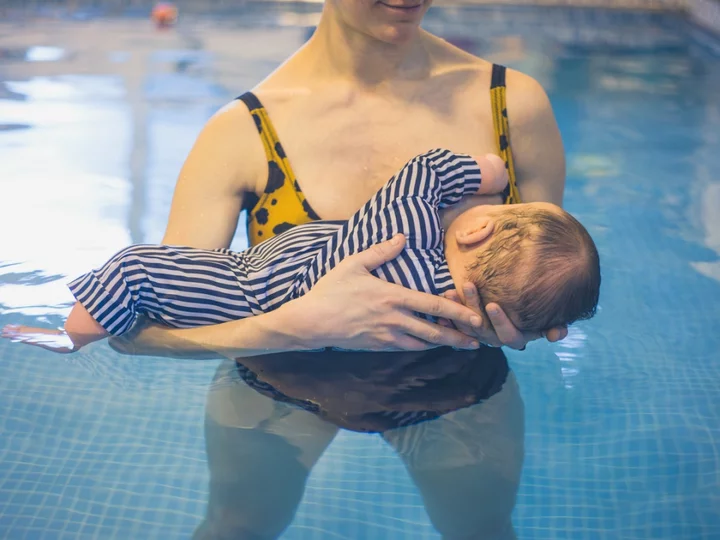
Breastfeeding mother left ‘upset and appalled’ after water park told her to stop nursing son in lazy river
A mother says she was left humiliated after water park staff told her she wasn’t allowed to breastfeed her nursing son in the lazy river. Tiffany Francis, a mother of two, from Georgia, took to Facebook on 14 July to detail the incident that allegedly occurred at Rigby’s Water World in Warner Robins, Georgia. Her Facebook post has since gone viral, with more than 1,000 likes and comments. “I have never in my years of being a breastfeeding mother had one single negative comment made to me about breastfeeding while out in public. I’ve had supportive comments from random people, but today was a different day,” she began her post. The mother then explained that she’d brought her 11-month-old son to the water park’s lazy river so she could nurse him before his nap. “He likes motion to sleep, he sleeps well in the car or swing, so he will also sleep in the lazy river,” she wrote. After her son was latched, Francis recalled that a lifeguard informed her that she wasn’t allowed to breastfeed in the lazy river. At first, she laughed off the lifeguard’s request because she thought it was a joke. Then, his boss came over to Franics and reiterated the lazy river’s rules against breastfeeding. “I asked her if it was posted somewhere and she told me that it was posted in the rules out front,” Francis said. “So I got out of the lazy river, and I went to read the rules.” The mother of two soon discovered that there was no rule against breastfeeding posted outside the lazy river attraction, and asked to speak to the water park’s manager. However, the manager instead claimed it was a “courtesy to other people” that she wasn’t allowed to breastfeed and cited the park’s rules against food or drink in the lazy river. According to the woman, she then asked for her family’s season passes to be refunded. “I can’t go there if I can’t get my son to nap while I’m there,” Francis said, noting that the water park staff wouldn’t refund her season pass. “Imagine all the bodily fluids being excreted into the water, but they’re worried about breastmilk when the baby was latched, my breast was out of the water, and the milk was only going into [the] baby’s mouth,” she continued. “I left crying, because I was told I couldn’t feed my child, which by the way it is against the law to tell a mother they can’t breastfeed their child. But sure, let’s worry about offending people by feeding a child.” Francis also pointed out how she witnessed several children sleeping in their mothers’ laps in the lazy river, and other children with their heads resting on their moms’ chests. “My situation looked just like theirs, my breast wasn’t exposed. My son’s face was covering everything,” she said. “Without looking extra hard, you’d think he was just asleep on my chest. But somehow I made people uncomfortable by doing the most natural thing I could do for my child, while just trying to let him nap.” Francis continued: “I’m just so upset and appalled and wanted to give a heads up to all the other moms out there that this is how breastfeeding moms are treated at Rigby’s Water World. You’re also not allowed to bring snacks in for the baby, so I was told today. I guess they’d rather babies just go hungry.” According to Georgia state law, which states that the “breastfeeding of a baby is an important and basic act of nurture,” a mother is allowed to “breastfeed her baby in any location where the mother and baby are otherwise authorised to be”. Speaking to People, Tiffany Francis described the incident as “humiliating” and noted that other breastfeeding mothers have since come forward sharing similar explanations about being shamed in public. "I just really didn’t think anybody would care. You’re at a water park. People are already pretty naked there, right? I don’t think it was the most offensive thing to happen that day," she told the outlet. “As a mom, it’s just crazy that people think it’s not okay to feed your own child. If it’s a bottle, it’s fine. Feeding them table foods, sure. But feeding them from the breast just grosses people out for some reason,” she added. “It’s been sexualised to the point where it’s not a natural thing, and that’s just gross.” In one comment, a fellow mother wrote: “Girl! Call me any day I’m off and we will go. I saw a mom nursing the other day and kept an eye on her just in case anyone approached. Wish I was still nursing because I would nurse right next to you!!” “What?! Sounds like a good old nursing mama sit-in needs to happen,” another commented. “How is that even still a ‘thing’ in 2023.” Meanwhile, one dad said: “Wow, as a father this is unbelievably wrong. Anyone should be able to feed their kid anywhere without a problem.” A member of the Rigby family, the owners of Rigby’s Water World, responded to the Facebook post in the comments section: “I know that breastfeeding is allowed in the park and I can understand the safety issues that come in hand with feeding in moving water. As for the courtesy of other guests, I agree that a mom should be able to breastfeed at any time, however an exposed breast in a water feature without a covering could be seen as indecent (we wouldn’t let another guest do the same).” She noted that the water park does have shaded seating, family rooms, and an “admin building” designated for breastfeeding. According to Today, Rigby’s Water World revised its breastfeeding policy within hours of the incident and apologised to Francis for the “misguided” policy. “We had a policy in place that didn’t allow breastfeeding in the river that was in line with the health department’s standard on no eating or drinking in the pools,” said Steve Brown, vice president of operations at Rigby’s Water World. “When I was made aware of the law that mothers can breastfeed anywhere they’re allowed to be, we reviewed our policy, reaching out to other experts who operate aquatic facilities,” he says. “From there, we decided to allow our guests to breastfeed in the pools, should they choose.” Georgia’s Department of Public Health rules and regulations for public swimming pools, spas, and recreational water parks states that “bathers shall not be allowed to eat or drink while in or partially in the water”. “We were under the impression it was a health code violation,” Brown told the outlet. “It was a misunderstanding…it was my mistake to misinterpret the law…there are different opinions on this issue but we want to comply with the law.” Brown added that Rigby’s did not issue Francis a refund for her season pass, and maintained that she was not asked to leave the park. The Independent has contacted Tiffany Francis and Rigby’s Water World for comment. Read More Researchers warn after 25 types of toxic flame retardant found in human breast milk: ‘Disturbing’ Keke Palmer’s boyfriend isn’t the only one who needs to stop telling women how to dress Woman sparks debate with claim she’s discovered the best month to get pregnant Woman claims restaurant ‘hack’ for toddlers solves family dinners out Mother calls out ‘double standard’ after husband is praised for doing ‘bare minimum’ Husband exposed for reaction to learning his wife is pregnant again
2023-07-26 01:29

Recall Alert: These Trader Joe’s Cookies May Contain Rocks
Here’s how to know whether to toss your Trader Joe’s cookies.
2023-07-26 00:17
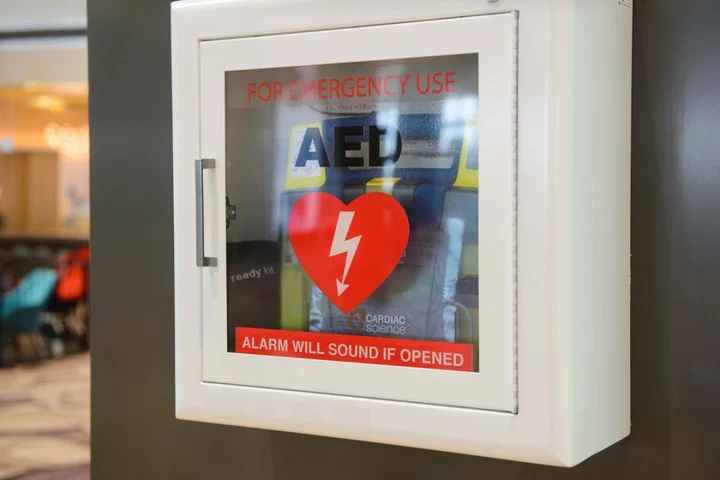
Everything you need to know about using a defibrillator
In a huge step for first aid in the UK, more than 20,000 defibrillators – which are devices that give an electric shock to the heart of a person who is in cardiac arrest – have been delivered to state schools across the country since January. Cardiac arrest can affect anyone, of any age, but according to St John Ambulance research, when a defibrillator is used within the first three minutes of a cardiac arrest, the chances of survival increase by up to 70%. Knowing how a defibrillator works could save someone’s life, but what should you know before using one? What is a defibrillator? “A defibrillator is an electrical device that provides a shot across the heart to help bring people out of cardiac arrest,” explains James McNulty-Ackroyd, head of clinical projects and paramedic at St John Ambulance. They are often labelled as an AED which is “an automated external defibrillator, and it recognises when using one would be beneficial for the patient. When we talk about cardiac arrests, we talk about shockable and non-shockable, and an AED is useful when the heart is in particular shockable rhythms”, he says. When used, the electrical shock stuns the heart to send it back to its normal function “from the right shoulder down to the left armpit”. The AED knows when it should work after the pads have been applied, because it “recognises the rhythm like an ECG automatically, and it will not shock if the heart is not in one of the relevant rhythms”. When should you use one? You only need a defibrillator in an incident of cardiac arrest. “They should only be used when the patient is not breathing normally, or the heart has stopped,” explains McNulty-Ackroyd. “Their breathing may be like a fish out of water, there is no rhythm to it, there is no real air entry, or non-purposeful gasping. “The heart is not pumping in that situation – it is not working, but there is some movement. They need a defibrillator and high-quality CPR (cardiopulmonary resuscitation).” What should you be wary of? The good news is, there’s not much to worry about when using one. “Ideally, you should not have anyone touching the patient when you press the big red button, but there are lots of different devices on the market and most have written and audible instructions, and tell you what to do, so it will say to stand clear and tell you what to press and when,” he explains. You need to take or cut the person’s shirt off, though. “There is quite a lot of disinformation about taking someone’s bra off. If you do not take their bra off, you cannot get the pads in the right place. Cut down the middle of the bra, and let it fall open.” What do you actually do? So, you have seen someone go into cardiac arrest or found someone who has collapsed. What do you do? “If you find someone who you think is in cardiac arrest, start CPR, shout for someone to bring you a defibrillator, and ask them to call for help,” advises McNulty-Ackroyd. “The first thing the ambulance service will ask is, ‘Are they breathing?’ They will ask if they’re awake and you will say ‘no’, as they are in cardiac arrest. “An ambulance will be sent as the highest priority in that area. In the meantime, you should be using an AED and performing CPR. “When you ring 999, they will tell you how to do CPR. Do not worry about hurting someone you are doing CPR on. That person is dead, they cannot feel pain, if they sit up and go ouch, they are not in cardiac arrest.” When using the defibrillator, “the first pad goes on the upper right, touching the clavicle [bone of the pectoral arch], and the other into the left armpit, nice and high”, he explains. Every minute you don’t shock that abnormal rhythm, the person loses a chance of life, so use a defibrillator and perform CPR if you are in any way worried about someone who has collapsed. Read More Charity boss speaks out over ‘traumatic’ encounter with royal aide Ukraine war’s heaviest fight rages in east - follow live What you need to know about the massive LVMH deal with the Paris Olympics Bisexual people ‘experience worse health than other adults’ What’s the coolest bedding to survive summer heat and night sweats?
2023-07-25 20:54

Rhodes: Holidaymaker criticises Tui for flying to fire-hit island
Matthew Guy and his family were taken straight from the airport to an evacuation centre.
2023-07-25 20:25

Grain trader ADM's quarterly profit tops estimates
(Reuters) -Archer-Daniels-Midland beat Wall Street expectations for second-quarter profit on Tuesday, as the grain trader and processor benefited from tight
2023-07-25 19:16
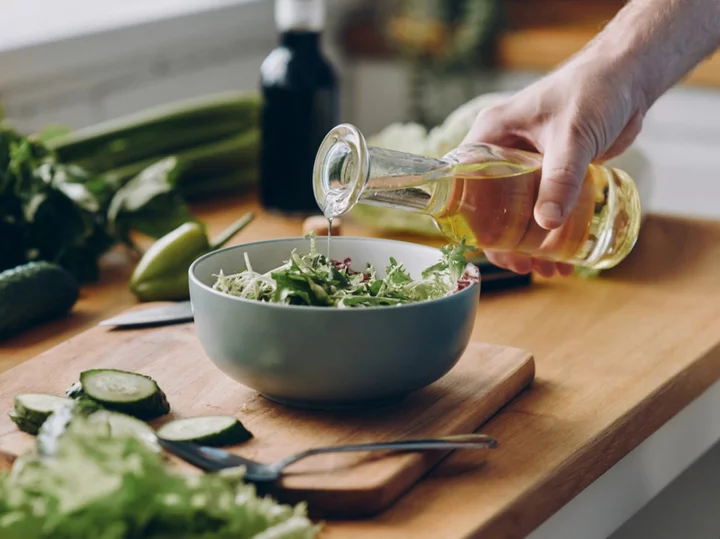
Scientists share the 8 habits that impact your lifespan the most
Scientists have identified eight unhealthy lifestyle choices which, if changed, could see people live more than 20 years longer. Lack of exercise, opioid use and smoking have the biggest negative impact on lifespan and can lead to a 30-45 per cent higher risk of death, according to the study. Stress, binge drinking, poor diet, and poor sleep hygiene were each associated with around a 20 per cent increase in the risk of death. And a lack of positive social relationships was the eighth habit mentioned and is associated with a 5 per cent increased risk of dying. Meanwhile, a separate study suggests incorporating olive oil into your diet could help reduce the risk of dying from dementia. Consuming more than half a tablespoon of olive oil per day is linked to a 28 per cent lower risk of dying from the condition, compared with those who never or rarely eat the oil, researchers say. The findings from both studies were presented at Nutrition 2023, the annual meeting of the American Society for Nutrition being held in Boston, and may include more up-to-date figures than the data initially submitted for the meeting. The research that looked at lifestyle habits used data from medical records and questionnaires collected between 2011-2019 from 719,147 people enrolled in the Veterans Affairs Million Veteran Program. It found that men who have all eight healthy habits - including high physical activity and not smoking - at age 40 would be predicted to live an average of 24 years longer than men with none of these habits, and for women an additional 21 years. Xuan-Mai Nguyen, health science specialist at the Department of Veterans Affairs and rising fourth-year medical student at Carle Illinois College of Medicine, USA, said: “We were really surprised by just how much could be gained with the adoption of one, two, three, or all eight lifestyle factors. “Our research findings suggest that adopting a healthy lifestyle is important for both public health and personal wellness. “The earlier the better, but even if you only make a small change in your 40s, 50s, or 60s, it still is beneficial.” The researchers say their findings, which have not been peer-reviewed, highlight the role of lifestyle factors in contributing to chronic diseases such as type 2 diabetes and heart disease that lead to premature disability and death. In the olive oil study, scientists analysed dietary questionnaires and death records collected from more than 90,000 Americans over three decades, during which 4,749 people died from dementia. It also found that replacing just one teaspoon of margarine and mayonnaise with the equivalent amount of olive oil per day was associated with around an eight to 14 per cent lower risk of dying from dementia. Anne-Julie Tessier, a postdoctoral fellow at the Harvard TH Chan School of Public Health in the USA, said: “Our study reinforces dietary guidelines recommending vegetable oils such as olive oil and suggests that these recommendations not only support heart health but potentially brain health, as well. “Opting for olive oil, a natural product, instead of fats such as margarine and commercial mayonnaise is a safe choice and may reduce the risk of fatal dementia.” Research suggests that people who regularly use olive oil instead of processed or animal fats tend to have healthier diets overall. However, Dr Tessier noted that the relationship between olive oil and the risk of dying from dementia in this study was independent of overall diet quality. She added that the research is observational and does not prove olive oil is the cause of the reduced risk of fatal dementia. However, Professor David Curtis, UCL, said it was difficult to assess whether the research adds much to the understanding of links between diet, health and dementia risk, as it has not been peer-reviewed. He added: “There are many, many differences between people who consume olive oil and those who do not and it is never possible to fully account for all possible confounding factors. “Another point to bear in mind is that about half of dementia is caused by vascular disease so that anything which improved cardiovascular health, such as not smoking, would be expected to reduce dementia risk. “It has been shown that olive oil consumption is associated with better cardiovascular health so one would expect that it would also be associated with lower dementia risk.” Dr Duane Mellor, registered dietitian and senior lecturer at Aston University, said: “The authors claim replacing margarine and mayonnaise with olive oil could reduce risk. “However, many people who did this would also change the food that it is being added to, which could increase vegetable, lentils, beans, peas, seeds and nut intake – all of which are linked to a healthy diet and reduced risk of conditions like dementia. “We also need to remember that it is not just what we eat that helps maintain our brain function, it is how we eat – and remaining sociable around meal times and eating with others can benefit our mental health in the short term and cognitive function as we age.” Read More The bowel cancer symptom George Alagiah wished he’d caught earlier Experts share 8 healthy habits to help you live longer Husband fired from family business after wife roleplayed with reborn dolls Cara Delevingne says her journey to sobriety has been worth ‘every second/ Bisexual people ‘experience worse health than other adults’ The bowel cancer symptom George Alagiah wished he’d caught earlier
2023-07-25 18:50
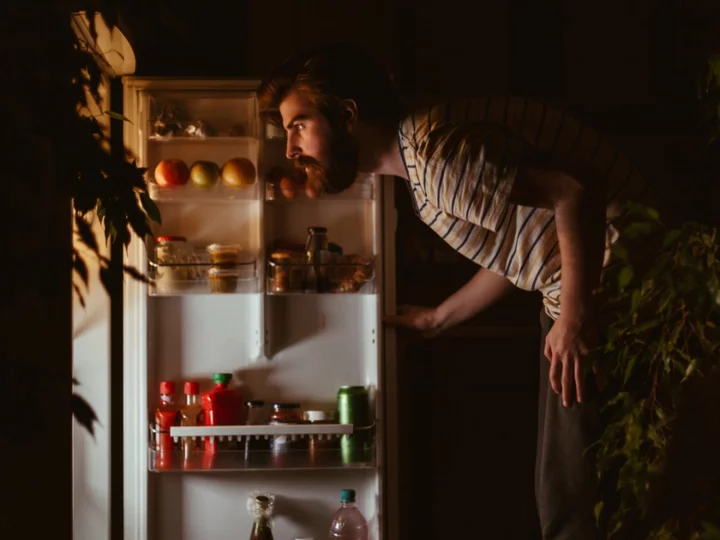
Late night snacking could increase risk of diabetes and heart disease, study says
Eating a snack late at night carries significantly more negative health implications compared to snacking during the day, a new study has found. According to researchers at King’s College London, people who eat most of their snacks in the evening after 9pm saw larger spikes in their blood sugar compared to those snacked earlier in the day. The group who snacked later also had higher concentrations of fat in their blood compared to those who snacked earlier. The researchers studied data from 1,000 people who took part in the Zoe Predict study. The participants kept a food diary and wore blood sugar monitors in order to keep track of the impact of snacking. On average, they ate two snacks a day, with one in three “late evening snackers” eating most of their snacks after 9pm instead of between meals. High blood sugar and fat can lead to diabetes and heart disease, studies have found. People with diabetes are also more likely to have other conditions that raise the risk of heart disease, such as high blood pressure. The Zoe Predict project is a group of in-depth nutritional research studies that aim to reveal how and why people respond differently to the same foods. Kate Bermingham, a postdoctoral fellow at King’s College London and lead author of the study, said: “Surprisingly little has been published on snacking, despite the fact that it accounts for 20 to 25 per cent of energy intake. “Predict followed a large number of people and captured detailed information on their snacking behaviours, allowing this in-depth exploration of snacking on health.” Researchers analysed the relationship between the number of snacks participants ate, the quality of the snacks and the timing with blood fats and insulin levels. Snacking on higher quality foods, which are described as foods that contain significant amounts of nutrients relative to the calories contained, was associated with better bodily responses. The study concluded that the most important factor in determining the body’s response is the quality of snacks, not how often or how much they are consumed. Foods like fruit or vegetables resulted in a better blood fat and insulin response compared to processed foods, such as biscuits and cake. Bermingham added: “Our study showed that the quality of snacking is more important than the quantity or frequency of snacking, thus choosing high quality snacks over the highly processed snacks is likely beneficial. “Timing is also important, with late night snacking being unfavourable for health. This may mean that, universally, snacking late in the evening and interrupting the overnight fasting window is detrimental to health.” The study was presented at a meeting of the American Society for Nutrition. Read More My Taylor Swift exercise class has led me down a luxury fitness rabbit hole Husband fired from family business after wife roleplayed with reborn dolls MrBeast YouTuber Kris Tyson comes out as transgender: ‘I’m excited to authentically be myself’ Scientists share the 8 habits that impact your lifespan the most Cara Delevingne says her journey to sobriety has been worth ‘every second/ Bisexual people ‘experience worse health than other adults’
2023-07-25 18:50

Rhodes: First flights taking NI tourists from wildfires due later
EasyJet and Jet2 flights carrying passengers from areas affected by wildfires will touch down tonight.
2023-07-25 17:15

Bisexual people ‘experience worse health than other adults’
Bisexual people experience worse health outcomes than other adults in England, a study has found. Data from lesbian, gay or bisexual (LGB) patients indicates these groups have poorer health outcomes compared to those who identify as heterosexual. The new findings indicate that bisexual people face additional health disparities within an already marginalised community. Experts from the Brighton and Sussex Medical School, and Anglia Ruskin University who led the analysis of more than 835,000 adults in England, suggest the differences could result from unique prejudice and discrimination that can come from both mainstream society and LGBTQ+ communities. Minority stress could put bisexual individuals at increased risk of psychological problems and negative behaviours – and ultimately at greater risk of poorer health outcomes Professor Carrie Llewellyn Lead author, Professor Carrie Llewellyn, head of the department of primary care & public health at Brighton and Sussex Medical School, said: “Minority stress could put bisexual individuals at increased risk of psychological problems and negative behaviours – and ultimately at greater risk of poorer health outcomes. “Our results suggest that there is a greater prevalence of long-standing physical health conditions amongst people identifying as LGB. “Furthermore, nearly all LGB individuals across all gender responses in the survey felt less confident in managing their own health.” Prof Llewellyn, added: “While it is well-established that persistent health disparities exist among LGB patients, very little is known about the specific experiences of bisexual people. “Our study goes some way to addressing this gap – finding that bisexual people, especially women, have the worst experiences in healthcare and the worst health outcomes of any sexuality.” The researchers used data from 836,312 adults – including 23,834 people who identified as LGB or ‘other’ – from Ipsos MORI’s 2015/16 English General Practice Patient Survey (GPPS). The study compared the health outcomes of people identifying as LGB with heterosexual groups through their self-reported quality of life, physical and mental health, and confidence in managing their own health. It found that long-term physical and mental health problems were more than twice as likely to be reported for people within LGB groups compared to heterosexual groups. However, for bisexual women the odds were more than four times greater. The research further suggests that bisexual women reported to be half as likely to be living without a long-term health condition. LGB groups across the genders felt less confident in managing their own health and experienced significantly worse quality of life compared to heterosexuals, the study published in The Journal of Sex Research, suggests. Prof Llewellyn said: “A better understanding of the different spectrum of health needs across LGBTQ+ subpopulations is required to provide adequate and equitable healthcare services for all. “Modification of healthcare settings to increase perceived accessibility and providing services that better meet these specific health needs are essential.” Read More Charity boss speaks out over ‘traumatic’ encounter with royal aide Ukraine war’s heaviest fight rages in east - follow live Cara Delevingne: Sobriety hasn’t been easy but it has been worth every second What’s the coolest bedding to survive summer heat and night sweats? Harry Judd: I had to learn to be less selfish when I became a father
2023-07-25 16:56

Cara Delevingne: Sobriety hasn’t been easy but it has been worth every second
Cara Delevingne has described herself as “stable and calmer” since embracing sobriety, but noted how challenging the process has been. The model and actress first spoke about her decision to go sober earlier this year, following a series of images that were taken of her at Van Nuys Airport in Los Angeles last year. The 30-year-old told Elle UK that she felt a weight was lifted after speaking about her struggles. She said: “For a long time, I felt like I was hiding a lot from people who looked up to me. I finally feel as though I can be free and myself, fully.” On embracing sobriety, she added: “It hasn’t (been easy), but there have never been moments when I’m like, ‘This isn’t worth it’. “It’s been worth every second. I just don’t know what it would take for me to give it up. I am stable. I’m calmer. “Before, I didn’t trust myself. I second-guessed myself constantly. There was a lot of anxiety involved. Now I just feel free of that.” Delevingne, who found fame as the face of luxury British fashion house Burberry in 2011, spoke about her struggle with the quick ascent to global stardom. She told Elle UK: “It didn’t feel real. I didn’t feel like I deserved it. I didn’t feel worthy. I was still stuck in this mindset of not being good enough. “I was doing the best I could, but I wasn’t really appreciating every moment. Inside, I felt very different to how I looked.” The model also praised her relationship with London musician Leah Mason, better known as her stage name Minke, in the process of becoming more secure. She said: “My girlfriend has been really wonderful in introducing me to a lot of things and people. “Being with my girlfriend, in this relationship, there are just so many things that came at once that have made me so happy and comfortable with who I am.” Delevingne also praised her close friendships within the fashion industry including with Jourdan Dunn and Karlie Kloss who taught her “a lot about living”. Having found fame as a model, Delevingne branched into acting with a minor role in Joe Wright’s 2012 adaptation of Anna Karenina. She later went on to secure leading roles in Paper Towns and Suicide Squad. On trying to live without expectations, she added: “It’s not easy. Like anything, it’s a practice. “I’m just taking it day by day. The projects I’m doing are things I really care about.” The September issue of Elle UK is on sale from July 27. Read More Charity boss speaks out over ‘traumatic’ encounter with royal aide Ukraine war’s heaviest fight rages in east - follow live What’s the coolest bedding to survive summer heat and night sweats? Harry Judd: I had to learn to be less selfish when I became a father How to bring a touch of the Mediterranean to your garden
2023-07-25 16:50
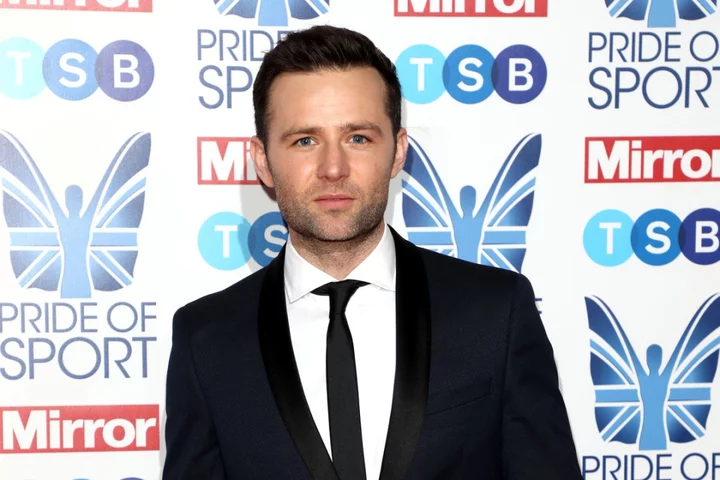
Harry Judd: I had to learn to be less selfish when I became a father
Sex, drugs and rock ‘n’ roll are not necessarily how you would describe McFly these days, as the band venture into fatherhood, settle down, write kids’ books and tour in a far less intense fashion. A lot has changed since their crash onto the music scene in 2003. They’re more chilled-out pals than boy band bad boys now. “Dougie was very excited today, because we figured out a really good post-show cool down,” Harry Judd, McFly’s drummer, says with a laugh. “[It involves] lighting a candle, having a shower, getting into some comfies and then having some healthy food. I can assure you, it is very rock and roll,” Judd, 37, adds. “It’s more sustainable that way – the way we do it – and also ultimately more enjoyable. You feel a lot more fresh, energised and able to do the gigs, because it’s quite a physically demanding job being on tour. “When we first started, we had that unbelievable energy you have with your buddies, but I enjoy it more now. We’re focused.” Changing priorities Judd’s lifestyle has changed in the past 20 years of McFly. “I’ve stopped doing anything I shouldn’t have been doing. I lived a pretty rock and roll lifestyle, so I think I was totally ready [to be a father].” Now, alongside playing with his bandmates, the 2011 Strictly Come Dancing winner is also playing with his children, Lola, seven, Kit, five, and Lockie, who’ll be two in October. All of his kids want to play very differently, and he gets to see them explore in many different ways. “Lola’s really into imaginative play, make-believe, roleplay, and right from an early age, I remember her pretending to play doctors and nurses, mothers and babies. I can tell already that she loves pretending to be a teacher, lining her teddies up and taking a class. “My son, Kit, on the other hand, loves music. I bought his first toy drum kit from Argos last year, but he’s now moved on to guitar, unfortunately. He is a bit more individual with his playing, pretending to be in McFly basically. I can see him going into music.” Despite Kit’s musical interests, his dad is not his favourite member of McFly. “Tom [Fletcher] is his favourite member and that’s something I’ve had to come to terms with,” Judd laughs. Out and about “My kids just finished for the summer holidays, so now I have to do more with them. You feel that guilt as parents, when they’re at school, because there’s no time and my daughter is constantly telling me, ‘Daddy, let’s do this. Let’s do that’. Even just carving out 10 minutes a day of play with your kids is hugely beneficial,” he says. And his time with them is often spent being a big kid. “We get outside… climbing trees and making dances; playing catch and cricket in the garden. [We play] Grandmother’s Footsteps, stuff like that. That, to me, is the most fun and fast way to engage with your kids.” Nurturing his inner child Judd is very aware of his own childishness. “I still can relate to a lot of my inner child now. I’m still very competitive and I’m quite sensitive. There are moments where I always want to be right and I have to try and contain that.” His wife Izzy, he says, knows she is sometimes dealing with a big kid, too. “I feel like she takes on so much. She has three kids. She’s got a man baby for a husband. She’s kind and she’s so caring,” he gushes. “The main thing for me, was to become less selfish. I think that’s one of the hardest things. You’re no longer number one. You can’t just do the things you want to do.” Harry Judd is partnering with Argos on its 50th birthday. Argos is giving away £20,000 worth of toys to mark its five-decade milestone. To find out more click here. Read More Charity boss speaks out over ‘traumatic’ encounter with royal aide Ukraine war’s heaviest fight rages in east - follow live How to bring a touch of the Mediterranean to your garden 6 of the biggest bridesmaid fashion trends to know about Experts share 8 healthy habits to help you live longer
2023-07-25 15:46
